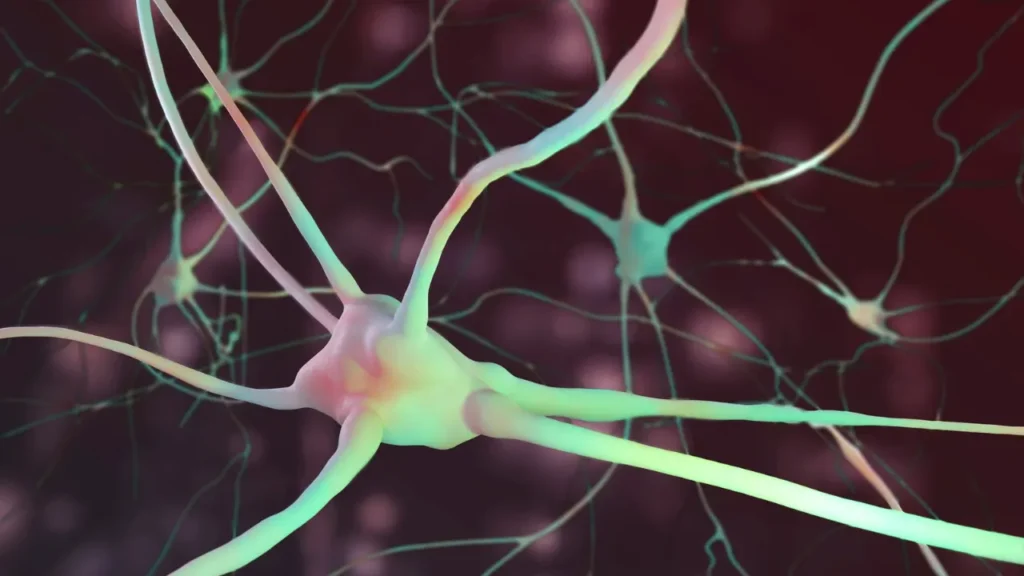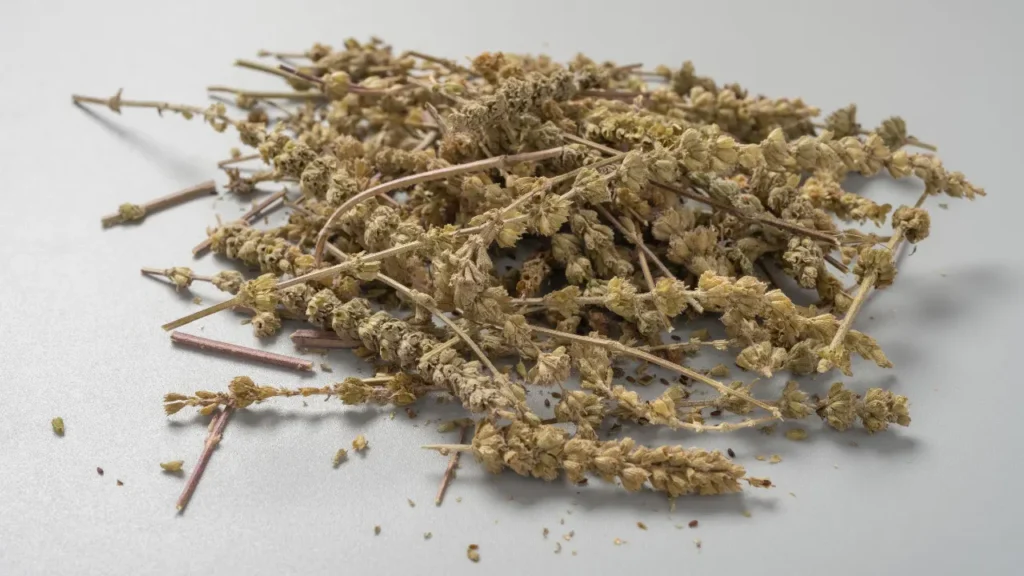Schizonepeta, also known as schizonepeta tenuifolia, is a traditional plant used in East Asian medicine used to treat a variety of diseases, including colds, fevers, and skin disorders. In recent years, there has been a growing interest in schizonepeta’s possible nootropic benefits, specifically its impact on alertness, focus, and cognitive function. This article will provide a complete explanation of schizonepeta, including its nature, health advantages, ideal dosage, side effects, potential substance interactions, and how to use this supplement responsibly.
You May Also Like:
Should You Try CBD for Focus? Here Are the Facts.
Diamond CBD Gummies vs. Joy Organics CBD Gummies
Schizonepeta: Benefits, Dosage, Side Effects, Drug Interactions, And Other Important Information is an original (NootropicsPlanet) article.
Nature of Schizonepeta
Schizonepeta belongs to the mint family and is distinguished by its aromatic characteristics and slender, spike-like blossoms. Schizonepeta has active components such as volatile oils, flavonoids, and polysaccharides, all of which are thought to contribute to its therapeutic benefits. Schizonepeta’s chemistry is complicated, with the plant possessing over 20 volatile chemicals such as pulegone, menthone, and limonene, all of which are thought to play an important role in its medicinal properties.
Health Benefits of Schizonepeta
Schizonepeta’s health benefits have been studied mostly for its anti-inflammatory, anti-allergic, and immune-modulating properties. Schizonepeta can decrease the release of inflammatory cytokines, including TNF-α and IL-6, that contribute to the body’s inflammatory response. Furthermore, schizonepeta exhibits antipyretic (fever-reducing) properties in animal research, which could make it effective for treating feverish situations.
The nootropic advantages of schizonepeta are of great interest and have been recently researched further. Preliminary study suggests that chemicals in schizonepeta can interact with neurotransmitter systems in the brain, potentially impacting cognitive functions like alertness, focus, and memory. However, further research is required to properly understand these impacts and the mechanisms underlying them.

Chemistry of Schizonepeta
The chemistry of schizonepeta is rich and complex, with its therapeutic potential rooted in a diverse array of bio-active compounds. Among these, the most significant are:
Volatile Oils: Schizonepeta contains numerous volatile oils, including as menthone, pulegone, and limonene. Menthone is well-known for its aromatic properties as well as its antifungal and antibacterial effects. Pulegone is a monoterpene that has been examined for its ability to alter neurotransmitter activity, but it is also known to be hepatotoxic at large dosages. Limonene, another monoterpene, has been linked to anti-inflammatory and antioxidant activity.
Flavonoids: These polyphenolic chemicals are widely known for their antioxidant properties. Flavonoids found in schizonepeta, such as apigenin and luteolin, can contribute to its anti-inflammatory and neuro-protective properties.
Polysaccharides: Schizonepeta contains complex carbohydrates that have been found to affect the immune system, which can improve the body’s response to infections and other external threats.
The interactions and balance of these chemicals affect the plant’s overall medicinal profile, including its anti-inflammatory, antibacterial, and neuro-active characteristics.
Physiological Properties of Schizonepeta
The physiological properties through which schizonepeta exerts its effects, particularly regarding its potential nootropic benefits, are multifaceted and involve several pathways:
- Anti-inflammatory Properties: The volatile oils and flavonoids in schizonepeta can inhibit the production and activity of pro-inflammatory cytokines, such as TNF-α and IL-6. By modulating the body’s inflammatory response, schizonepeta can alleviate conditions associated with excessive inflammation, potentially reducing the associated cognitive impairments.
- Neurotransmitter Modulation: While the specific effects of schizonepeta on the brain’s neurotransmitter systems are still undergoing further research, compounds like pulegone have been suggested to interact with neurotransmitter receptors or their uptake mechanisms. This interaction can influence levels of neurotransmitters such as acetylcholine, which plays a critical role in learning and memory. Modulating neurotransmitter activity can affect cognitive functions, including alertness, focus, and cognition.
- Antioxidant Properties: The flavonoids in schizonepeta possess antioxidant properties, combating oxidative stress within the brain. Oxidative stress is a key factor in the aging process and the development of neuro-degenerative diseases. By reducing oxidative damage, schizonepeta can help protect neurons, potentially supporting cognitive health and function.
- Immune System Modulation: The polysaccharides in schizonepeta can enhance immune function by stimulating the activity of immune cells. An optimized immune response can contribute to overall health, indirectly supporting cognitive functions by reducing the impact of infections and inflammation on the body.
- Hepatoprotective Effects: Despite concerns over hepatotoxicity with high doses of pulegone, schizonepeta as a whole has been researched for its potential hepatoprotective effects, possibly through its anti-inflammatory and antioxidant properties. A healthy liver function is crucial for overall metabolic balance, including the regulation of toxins and substances that could impact brain health.

Optimal Dosage of Schizonepeta
The ideal dosage of schizonepeta is difficult to determine because the concentration of active components varies in different herb preparations. Dosage can also vary depending on the individual health issue being treated. Traditional dosages of the dried herb range from 4.5 to 9 grams daily, but modern supplements can propose a different amount. It is critical that individuals follow the manufacturer’s recommendations or consult a healthcare expert when deciding the right dosage.
Side Effects of Schizonepeta
Schizonepeta is generally thought to be safe when used in standard doses. However, some individuals can experience side effects, especially at greater doses. These can include gastrointestinal issues like nausea and vomiting, as well as allergic reactions in sensitive patients. Pulegone, a chemical found in schizonepeta, has been linked to hepatotoxicity (liver damage) at high dosages. As a result, caution is urged, particularly for those who already have liver issues.

Potential Substance Interactions with Schizonepeta
Schizonepeta can interact with other drugs and supplements, especially those that have similar effects on the immune system or blood coagulation properties. For example, taking schizonepeta with immunosuppressive medications can change the immunological response. Similarly, because of its potential effects on blood coagulation, schizonepeta can interact with anticoagulants, increasing the risk of bleeding. Individuals using any drugs should contact with a healthcare provider before using schizonepeta supplements.
Best Responsible Use of Schizonepeta
For those interested in investigating schizonepeta’s nootropic benefits, responsible use is essential. This includes beginning with the lowest possible dose to determine tolerance and progressively increasing as needed. Individuals should also be aware of any negative effects and drug combinations. Given the limited study on schizonepeta’s nootropic effects, consumers should proceed with caution and, ideally, consult a healthcare practitioner before introducing it into their routine.
Schizonepeta:
Conclusion
In summary, schizonepeta (also known as Japanese catnip) is a plant with many potential health benefits. While it has been traditionally used in Traditional Chinese Medicine for various conditions, scientific evidence supporting its effectiveness remains limited. As with any supplement, it’s essential to consult with a healthcare professional before use. Individual responses may vary, and more research is needed to fully understand schizonepeta’s efficacy and safety.

References:
- Schizonepeta – Uses, Side Effects, and More. Retrieved From:https://www.webmd.com/vitamins/ai/ingredientmono-1102/schizonepeta
- Schizonepeta tenuifolia inhibits collagen stimulated platelet function via suppressing MAPK and Akt signaling. Retrieved from: https://www.ncbi.nlm.nih.gov/pmc/articles/PMC6813526/
- Review on Chemical Constituents of Schizonepeta tenuifolia Briq. and Their Pharmacological Effects. Retrieved from: https://www.ncbi.nlm.nih.gov/pmc/articles/PMC9415675/
Important Note: The information contained in this article is for general informational purposes only, and should not be construed as health or medical advice, nor is it intended to diagnose, prevent, treat, or cure any disease or health condition. Before embarking on any diet, fitness regimen, or program of nutritional supplementation, it is advisable to consult your healthcare professional in order to determine its safety and probable efficacy in terms of your individual state of health.
Regarding Nutritional Supplements Or Other Non-Prescription Health Products: If any nutritional supplements or other non-prescription health products are mentioned in the foregoing article, any claims or statements made about them have not been evaluated by the U.S. Food and Drug Administration, and such nutritional supplements or other health products are not intended to diagnose, treat, cure, or prevent any disease.


